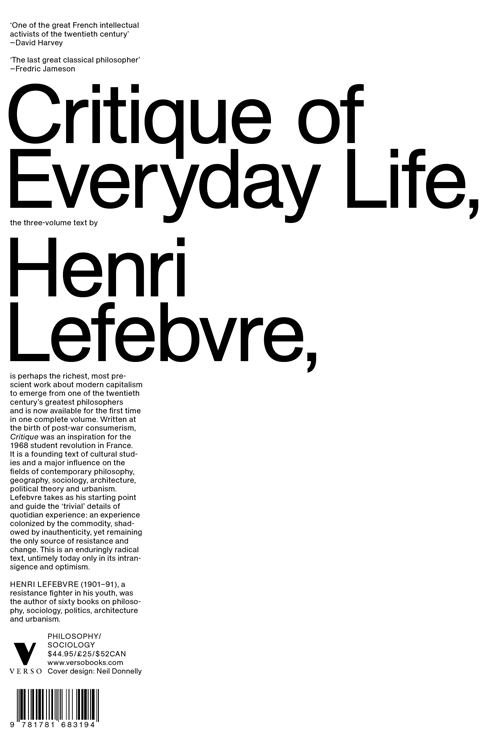10 Books Every Student Should Read!

These are the books that transformed our thinking; classics from across our publishing that we think should be on everyone's bookshelves.
Whether you are just starting out, or your student days are far behind you, here is a definitive list of books that you need to read.
Until January 2, 2023 at 11:59PM EST, we have 40% off ALL books (see full details here)!
See our Gift Guide and all our reading lists, including The Year in 10 Books, Radicalize Your Niblings, Radical Happiness, Tis the Season to Abolish the Family, Understanding the Cost of Living Crisis, Christianity and Anticapitalism.
The full magnitude of Benedict Anderson’s intellectual achievement is still being appreciated and debated. Imagined Communities remains the most influential book on the origins of nationalism, filling the vacuum that previously existed in the traditions of Western thought. Cited more often than any other single English-language work in the human sciences, it is read around the world in more than thirty translations.
Praised by a wide variety of people from Ta-Nehisi Coates to Zadie Smith, Racecraft “ought to be positioned,” as Bookforum put it, “at the center of any discussion of race in American life.”
"A volume of Adorno is equivalent to a whole shelf of books on literature."—Susan Sontag
A reflection on everyday existence in the 'sphere of consumption of late Capitalism', this work is Adorno's literary and philosophical masterpiece.
How did the dynamic economic system we know as capitalism develop among the peasants and lords of feudal Europe?
In The Origin of Capitalism, a now-classic work of history, Ellen Meiksins Wood offers readers a clear and accessible introduction to the theories and debates concerning the birth of capitalism, imperialism, and the modern nation state.
No other country and no other period has produced a tradition of major aesthetic debate to compare with that which unfolded in German culture from the 1930s to the 1950s. In Aesthetics and Politics the key texts of the great Marxist controversies over literature and art during these years are assembled in a single volume. They do not form a disparate collection but a continuous, interlinked debate between thinkers who have become giants of twentieth-century intellectual history.
In this classic book, Rodney makes the unflinching case that African “mal-development” is not a natural feature of geography, but a direct product of imperial extraction from the continent, a practice that continues up into the present. In this new edition, Angela Davis offers a striking foreword to the book, exploring its lasting contributions to a revolutionary and feminist practice of anti-imperialism.
The three-volume text by Henri Lefebvre is perhaps the richest, most prescient work about modern capitalism to emerge from one of the twentieth century's greatest philosophers and is now available for the first time in one complete volume. Written at the birth of post-war consumerism, Critique was an inspiration for the 1968 student revolution in France. It is a founding text of cultural studies and a major influence on the fields of contemporary philosophy, geography, sociology, architecture, political theory and urbanism. Lefebvre takes as his starting point and guide the "trivial" details of quotidian experience: an experience colonized by the commodity, shadowed by inauthenticity, yet remaining the only source of resistance and change. This is an enduringly radical text, untimely today only in its intransigence and optimism.
One of America’s most historic political trials is undoubtedly that of Angela Davis. Opening with a letter from James Baldwin to Davis, and including contributions from numerous radicals such as Black Panthers George Jackson, Huey P. Newton, Bobby Seale and Erica Huggins, this book is not only an account of Davis’s incarceration and the struggles surrounding it, but also perhaps the most comprehensive and thorough analysis of the prison system of the United State.
With race and the police once more burning issues, this classic work from one of America’s giants of black radicalism has lost none of its prescience or power.
Nancy Fraser’s classic work traces the feminist movement’s evolution since the 1970s and anticipates a new—radical and egalitarian—phase of feminist thought and action. Fraser argues for a reinvigorated feminist radicalism able to address the global economic crisis. Feminism can be a force working in concert with other egalitarian movements in the struggle to bring the economy under democratic control, while building on the visionary potential of the earlier waves of women’s liberation. This powerful new account is set to become a landmark of feminist thought.
For nearly forty years, David Harvey has written and lectured on Capital, becoming one of the world’s foremost Marx scholars. Based on his recent lectures, this current volume—finally bringing together his guides to volumes I, II and much of III—presents this depth of learning to a broader audience, guiding first-time readers through a fascinating and deeply rewarding text.
********************
Further Reading
Tis the Season to Abolish the Family
Understanding the Cost of Living Crisis
Christianity and Anticapitalism
I Do Not Dream of Labour: books that imagine a different working world
We all live in a country called Capitalism
Imagining Radical Futures: utopian thinking for a different world
Abolition is the only solution: a reading list for breaking police power
10 Books Every Student Should Read
Decolonize your bookshelf! Verso Student Reading





















